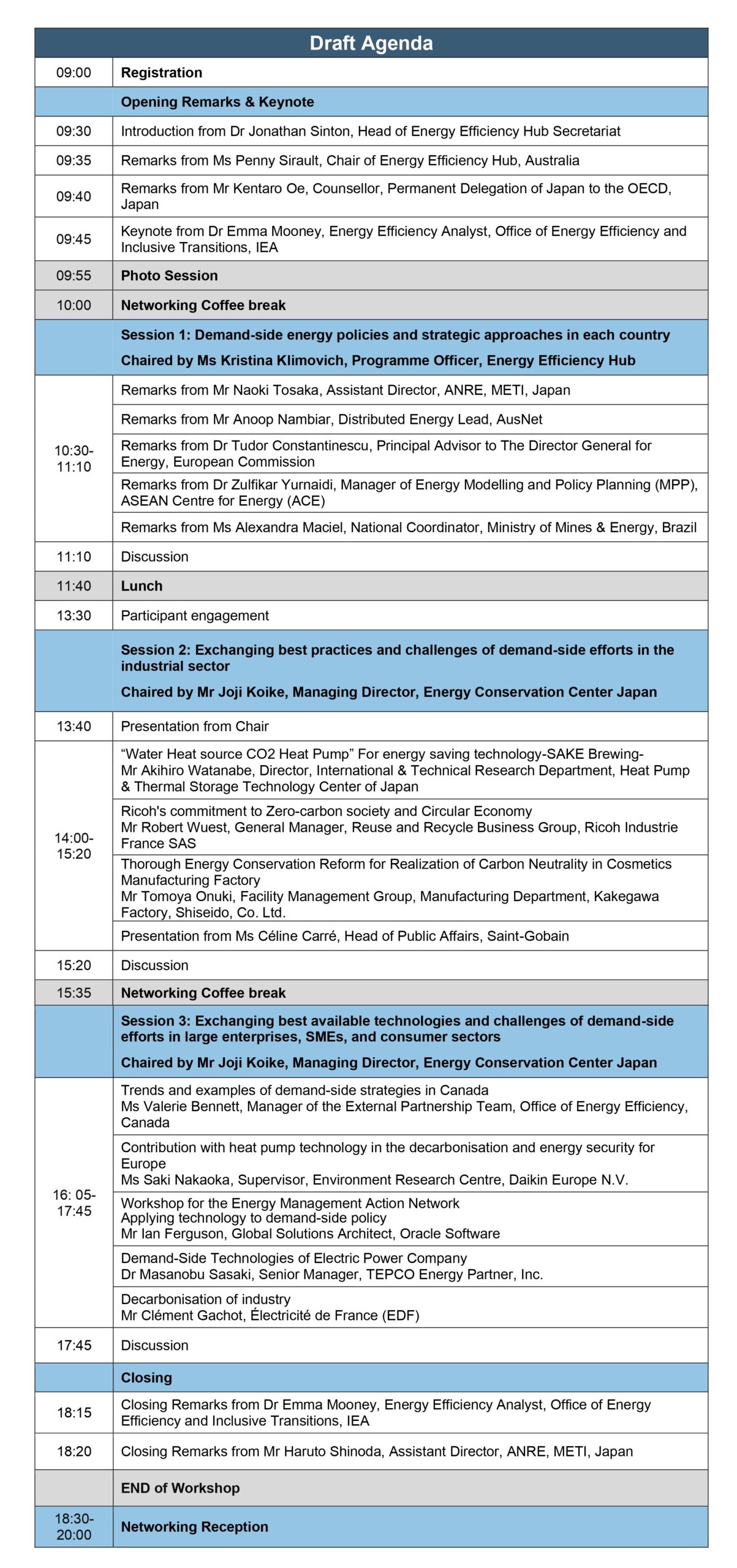The 12th Energy Management Action Network Workshop
– EMAK12 –
“Evolution of Energy Efficiency Policies into Demand-side Energy Policies”
The workshop will bring together policy makers and private sector leaders to address strategic approaches to electrification, fuel switching, grid flexibility, digitalisation, and disclosure of energy and climate related information.
The dual goal of achieving decarbonisation and energy security requires a strong focus on energy efficiency policies and the development towards demand-side energy policies, considering energy efficiency is the “first fuel”. Governments have recognised the critical role of energy efficiency since the global environmental movement and oil crisis of the 1970s. The more recent energy crisis in 2022 underscored the importance of demand-side policies and solutions, to achieve carbon neutrality and energy security and to alleviate the impact of high prices on consumers and businesses.
Participants will discuss demand-side energy policies and approaches for the industrial and buildings sectors, including electrification, heat pump deployment, smart meter rollout, demand response, and grid flexibility.
The event is being organised by the Ministry of Economy, Trade, and Industry of Japan, with the support of the Energy Conservation Center, Japan. The Workshop is an initiative of the Energy Management Action Network (EMAK), a Task Group of the Energy Efficiency Hub.
Details
■ Date: Date 13 December 2023
■ Venue: Hilton Paris Opera, 108 rue Saint-Lazare, 75008 Paris
■ Time: 9:30 – 18:20 (GMT+1)
■ Agenda: https://www.asiaeec-col.eccj.or.jp/emak12-Agenda/
■ Youtube URL: https://youtube.com/live/UI7922s3lGY
This workshop is the best opportunity to:
■ Learn more about energy efficiency and demand-side policy design and implementation in different countries and regions in terms of both incentive and regulation,
■ Exchange best practices and challenges in implementing policies to promote electrification, fuel switching, grid flexibility, digitalisation and the disclosure of energy and climate-related information,
■ Connect with policy makers and private sector stakeholder working to foster the clean energy transitions.
The archive for EMAK is available here.



